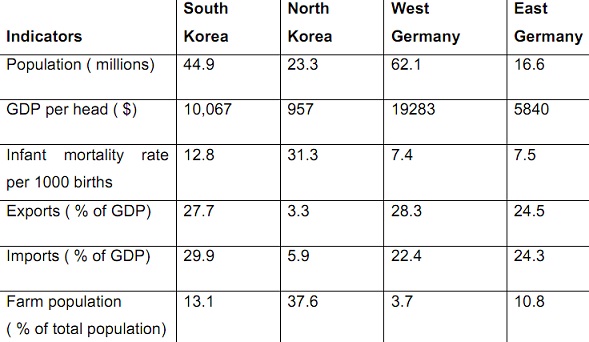German And Korean Reunification
In 1990 West Germany and East Germany were reunited as single country following over forty years of separate development. West Germany had followed a democratic, market system while East Germany had operated a communist, planned economy. Throughout 1997, the possibility of a similar reunification between market-oriented South Korea and the collectivist economy of North Korea was discussed in media, with suggestion that the lessons learned during the German experience may be useful in the two Koreas went ahead with the merger.
The following statistics indicate some of differences between the economies prior to any reunification.
Social and economic indicators in Korea and Germany in 1990

(a) Using the data, describe which of four countries
(i) Had the highest standard of living.
(ii) Had the largest deficit on its trade
(iii) Was the least open economy
(b) What is the differentiation between South Korea and North Korea in terms of their economic system?
(c) Describe any significant changes which may be required when a planned economy moves towards a market system.
(d) Where does North Korea locate itself in sphere of Economic Development? How far is this confirmed by data?
(e) Using the data, discuss the view whether which the reunification of Korea would be more complex than it was for Germany.